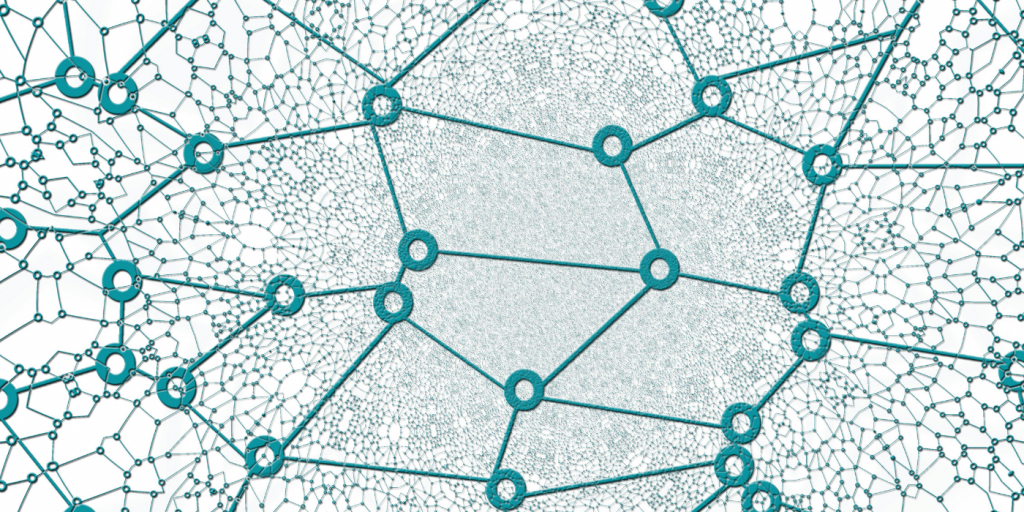Authors: Kennedy Mbeva, Victoria Chengo, and Joanes Atela
Community networks are part of non-state actors who have notably played a critical role in supporting livelihoods and businesses especially the poor in Africa. Recent research reveals that these non-state actors are particularly engaging in initiatives pertinent to the needs of local communities across the globe, and often working across networks to do so. In response to COVID-19, these networks have emerged as crucial in Africa in many ways. For instance, they have formed a new mode of governance, referred to as the ‘last mile’ governance model, that plays an important role in bridging the gap created by insufficient state capacity (i.e. resources, outreach, evidence etc.) to effectively address the needs of communities, especially the marginalized populations. These gaps include lack of proper understanding and integration of the needs of the poor (i.e. residents of informal settlement, local communities in marginalized areas, socially oppressed groups e.tc.) in the decision-making processes and most importantly during pandemics such as the COVID-19. This blog explores how these ‘last mile’ networks have played a role in responding to COVID-19 both in emergency as well as in the long term.
Emergence of ‘Last Mile’ Networks
More than ninety percent of African countries have so far reported cases of the COVID-19 disease. Even though the African continent has so far reported relatively low number of infections and mild health severity compared to the WHO projected figures, most African communities, especially the poor, have been exposed to additional economic and social vulnerabilities over and above the health risks posed by the pandemic. In other words, for these communities, addressing COVID-19 only matters if the ensuing economic, social and health risks are collectively addressed, and this requires collective actions from both state and non-state actors (the ‘last mile’ networks).
Community networks hereby referred to as the ‘last mile’ networks have emerged as crucial part of COVID-19 response in Africa. Simply defined, ‘last mile’ networks are a collection of diverse groups of actors within and outside a local community that spontaneously emerge to address an emergency or other pressing needs, of vulnerable local communities. These networks uniquely emerge within the local contexts – working closely with the local communities especially the poor, thus are able to play critical roles in awareness creation, communication, and pro-poor rapid response and learnings through COVID-19. Examples of ‘last mile’ community networks and initiatives that have been addressing COVID-19 are numerous across African countries: In Kenya’s informal settlements of Kawangware, Mathare, and Majengo, indigenous organizations such as Mutual Aid Kenya, Sarafu Credit, the Kenya Red Cross Society, and Zakat Kenya are reinforcing the government’s response strategy by identifying at-risk families and providing targeted assistance through direct cash transfers, food parcels, and alternative supply chains to provide essential commodities. In Uganda, market vendors adopted self-monitoring measures to ensure compliance with emergency health regulations or face closure. Further, the underlying intractable challenges in Africa especially for the vulnerable segments of the society where these networks operate creates opportunities for impactful resource allocations. The networks are also ad hoc in nature, with no formal administrative structures which makes them flexible and aligned to the local needs. These characteristics make ‘last mile’ networks a unique form of governance approach that require an understanding of their operations and how best they can be strengthened in light of the COVID-19.
How are these Last Mile Networks supporting response to COVID-19?
‘Last mile’ networks have organized their systems in strategic ways to support response to COVID-19 in Africa. They have been mobilizing grassroot actors and generating evidence for rapid response in line with international opportunities/standards. While state/national governments remain at the forefront of providing emergency directives on COVID-19, community based organizations and humanitarian organizations have also emerged as important actors especially in utilizing their existing structures and networks to jointly deliver emergency and relief to the marginalized and vulnerable communities. These networks have also become key sources of evidence on what is happening on the ground, deploying various technologies to support local actions in line with international standards and tapping into the resources and capacities available within the international communities. An example of such network is the Muungano wa Wanaviji, a CBO operating in one of the informal settlements in Nairobi that has been able to use its grassroot presence to undertake daily COVID-19 surveillance and information gathering for use at the city and national levels.
Last Mile Networks have also created community champions who have been quite instrumental in creating awareness and catalyzing behavior change among local communities. Communication and behavior change are central to the effective response to COVID-19. ‘Last mile’ networks in many African countries have produced ‘community knowledge champions’ who are instrumental in creating awareness and catalyzing behavior change in the COVID-19 response. These champions have developed strategic outreach options including media, Art (murals and paintings), as well as music to influence behavior change among the unreached or hard to reach populations. They have also become a central part of COVID-19 knowledge systems, furnishing the Government and the international community with evidence/indigenous knowledge on COVID-19.
In addition, many ‘last mile’ networks including NGOs, small businesses (SMEs), as well as humanitarian initiatives are currently pioneering local production of COVID-19 response kits such as face masks, innovation of ventilators, hand-washing machines, among others. These materials are largely targeted at the poor and needy segment of the society including slum dwellers, thereby signaling greater potential of community networks to promote pro-poor response to pandemics such as COVID-19 and offering lessons to Governments. In Kenya, for instance, the national government is responding to these endogenous innovations through operationalization of the Great COVID-19 Innovation Challenge to nurture and incubate ideas and innovations on medical, logistics in the food chain and dignified work designed to support overall containment/management of COVID-19.
But how can these initiatives be strengthened for the future?
Cognizant of the emergency nature of COVID-19, the ‘last mile’ community initiatives open an important opportunity for strengthening long-term responses to COVID-19 and future pandemics. Post-COVID-19, it will be critical to analyze how such cooperative initiatives can be strengthened into a sustainable ‘last mile’ governance model to complement state capacity in addressing emergencies such as the COVID-19. Strengthening and sustaining these community initiatives will also allow for resilience and preparedness for future pandemics. To this end, research evidence on how these initiatives operate, and opportunities for strengthening them is necessary to inform decision and actions for strengthening the ‘last mile’ community initiatives.
Strengthening the alliances and connections for these ‘last mile’ initiatives is key. The COVID-19 experience has driven an emergence of new alliances and collaborations that link these community networks with international networks and regional bodies, such as the African Centre for Disease Control (CDC) and Regional Economic Communities (RECs). There have also been new connections with international/national funding streams and capacity support systems. All these are likely to open new frontiers for collaboration that could enhance effectiveness of community-focused networks and businesses in the future. Such initiatives that also cut across borders would also allow for sharing of innovative technology, such as the $1 COVID-19 testing kit developed in Senegal. African countries have also coordinated their approaches and responses at the continental level through the African Union and also the regional economic communities (RECs). These alliances and collaborations could be nurtured for future benefits. But most importantly, they should connect with ‘last mile’ initiatives, to ensure the most vulnerable members of the community are reached.
Ultimately, ‘Last Mile’ community initiatives have emerged as a crucial complementary response to the COVID-19 pandemic. Given the limited state capacity to respond to the pandemic, actors such as private companies, civil society and community groups, among others provide pro-poor support and resilience building to the most vulnerable members of the society. Moreover, such initiatives have been dynamic and tailored to local contexts and realities. It would be important, however, to foster understanding on how such community initiatives work, and how they can be strengthened and made more resilient. After all, they may become a constant feature of many other policy responses, especially given the perennial limited capacity of the state, coupled with the rigidity of other formal organizations in the face of uncertainty of future pandemics and other emergencies.



